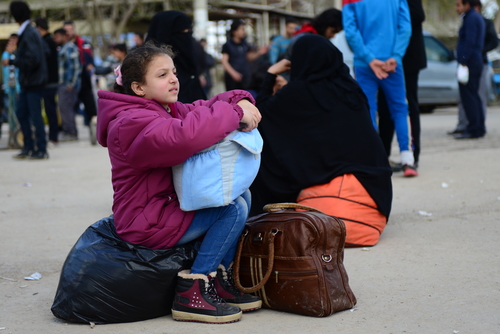A cost-benefit analysis of refugees will only fuel hysteria

 A cost benefit analysis of the refugee crisis will inevitably focus on the costs and fuel the hysteria of Wilders’ hordes. It would be better – and cheaper in the long run – to concentrate efforts on establishing a long-term policy, writes economist Marcel Canoy.
A cost benefit analysis of the refugee crisis will inevitably focus on the costs and fuel the hysteria of Wilders’ hordes. It would be better – and cheaper in the long run – to concentrate efforts on establishing a long-term policy, writes economist Marcel Canoy.
According to CPB director Laura van Geest, it doesn’t do to calculate the costs of refugees. According to Volkskrant columnist Frans Kalshoven – with in his wake a couple of applauding professors – this is exactly what should happen.
Kalshoven’s argument is simple and logical. There are a number of objectifiable effects (accommodation costs, for example). Why not map these so you can separate them from the unobjectifiable, ethical and sometimes emotional issues (for example, the extent to which our society is willing to be fair or empathic).
I’m with Kalshoven on many things. It’s fine to make a cost benefit analysis of matters natural and cultural before asking the ethical question of what we are prepared to spend on a symphony orchestra or a nature reserve. But it won’t wash with refugees.
The costs of decent facilities (bed, bath and bread) are easily calculated. The benefits are speculative (what will happen to the labour market?) or impossible to express in figures (the impact on stability, solidarity or sense of security). Those benefits can’t be written off under the heading of ‘ethical arguments’. These are real benefits which can easily translate into solid euros, even if we have no idea how many.
Unquantifiable
You could argue that good researchers would give prominence to these unquantifiable benefits as well. Laura van Geest probably realises that the government’s macro-economic think tank CPB doesn’t have a great track record when it comes to doing justice to benefits that are difficult to quantify. Health care is a good example, and so is the CPB report into the cost and benefits of migration (2003) in which unquantifiable benefits were reduced to insignificant footnotes.
Even if the CPB were to rise above itself and make an honest attempt at interpreting these benefits, they would undoubtedly fall victim to the usual fate in the public discourse: uncertain benefits will always be equated with non-existent ones.
The refugee crisis needs a thorough and calm political decision making process. A sustained European asylum policy will lead to stability in the region and a firmer sense of security. A mature handling of the migration issue will lead to selection and positive effects on the labour market, and greater public acceptance.
Kalshoven’s well-meaning but naive attempt to rid the debate of emotion will achieve exactly the opposite. A cost benefit analysis of refugees will inevitably put the spotlight on costs and that will give Wilders’ already hysterical hordes more ammunition. It would be much better to do our utmost to increase the long-term benefits. That would be better for migrants and asylum seekers, better for Europe and better even for disgruntled citizens.
Marcel Canoy is an economist, academic and lecturer at the Erasmus School of Accounting & Assurance
This article appeared earlier in the Financieele Dagblad
This column comes with a PS from the writer:
Misunderstanding 1
Some have seen this column as an attempt to gloss over effects, or even ban research. That is not the case. Research should only be carried out if it contributes something to society. I tried to explain that this analysis does not contribute anything to the quality of the decision making process and therefore isn’t fit for purpose.
Misunderstanding 2 Refugees versus refugee policy
Cost benefit analyses are made to evaluate policies, not people. This analysis is not about what refugees ‘bring’ but what the costs and benefits are of a more or less stringent refugee policy.
Misunderstanding 3 The counterfactual
A cost benefit analysis usually comes with a counterfactual: what happens if we don’t carry out this policy? Asylum policies in particular are costly but relatively cheap compared to the costs of a destabilised region or the erosion of the European Union. It is impossible to quantify this complex matter. That is why I think we should leave this to the ‘wisdom’ and insight of politicians, which will, of course, be subject to the usual democratic checks and balances.
Thank you for donating to DutchNews.nl.
We could not provide the Dutch News service, and keep it free of charge, without the generous support of our readers. Your donations allow us to report on issues you tell us matter, and provide you with a summary of the most important Dutch news each day.
Make a donation